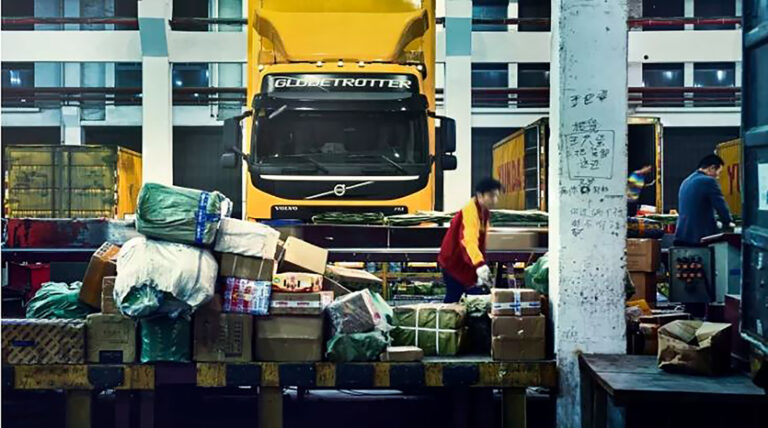Blockchain can transform trucking operations with faster processes and less administration, according to truck manufacturer Volvo.
Jonas Lindholm, vice president of productivity services, said blockchain could eliminate today’s paper-based systems where forms have to pass through numerous channels and approvals, which increase the risk for loss and fraud while creating a massive amount of administration. This would be done through smart contracts – self-executing tasks that are coded through the blockchain and performed when certain conditions are met.
“For instance, if a trucker reaches a destination or hands over the cargo to someone else along the route, a smart contract could make everyone in the blockchain aware of the event and immediately make the shipping document available to the next party and/or release the payment.”
Lindholm also pointed out that all of the data that is tracked via the smart contracts gives a lot of insight into the physical movements of, and interactions with the transported goods.
“This can be very useful in eliminating inefficiencies in dispute resolution. For example, if a load or the truck is tagged using IoT sensors, a blockchain record will show much more information about the delivery such as data about the time and condition (temperature, humidity etc.) of goods throughout the supply chain.
He also highlighted the opportunities for tracking assets and achieving better transparency.
“These benefits could be just the tip of the iceberg. Many more applications for blockchain will emerge as the technology interacts with other innovations. Companies like Walmart are already using blockchain technologies powered by IBM to digitise processes and improve food safety in their supply chain.
“Nevertheless, there are certainly a number of challenges to the wider adoption of blockchain in logistics. Standardisation, lack of knowledge, legislation and trust in a new technology are just a few of the obvious hurdles,” said Lindholm.







